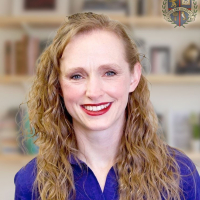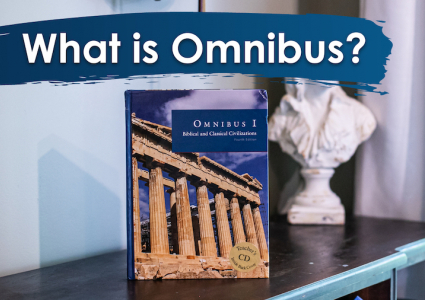Changing Your Focus From Correct Behavior to Developing a Strong Relationship
I sat in the car with my husband driving home from our date night together. I try not to spend our date nights talking about problems from my day; it just seems like he deserves better, but this night the issue I was sorting out was just too big. It was the end of the school year, and I faced an insurmountable dilemma.
The problem that I was facing was, of course, that I was a failure.
I looked at all of the systems, schedules, and goals that I had begun the year with and saw nothing but tattered ruins. What had happened to our housekeeping systems? What about the Bible time I had scheduled out with the toddler (you know like we all do with our firstborn)? And then there was the stack of literature books and comprehension projects untouched on my daughter’s bookshelf? On just about every front, I had failed to achieve what I had set out to do last summer.
Maybe I was ruining my children! Not only that but wasn’t I depriving them of the necessary social interaction that day school students get? The picture I painted in my mind included a vivid list of failed objectives and socially inept children.
We talked for a while, and his comments were comforting but not quite as tangible as I was looking for. From his perspective, everyone was doing fine. He was proud of me and proud of the children. The abandoned cleaning lists were not a big deal, and we still had time to keep the toddler from becoming an atheist. I appreciated his encouragement so much – at least I knew there was one person out there who didn’t think I was failing.
But what about that question, “Am I ruining my children?”
Coincidentally, the next day I talked with one of my very special friends at Veritas. She is a few years ahead of me in parenting, and we had been trying to connect for a while. One of the drawbacks to having been in the teaching profession for so long is that it can fill one’s mind with phobias. Teachers see so many sweet little children grow up, and many of them do not turn out the way you would have expected. Many of the model students from my day school teaching days ended up connecting with bad crowds in college and made life-altering bad decisions. While some of the rougher students, students who struggled socially and academically, ended up making excellent decisions in college and are still walking with the Lord. “Why is this?” I asked my friend. How do I avoid setting my children up for failure and being socially vulnerable when they leave my home?
Several years ago, she and her husband made the decision to shift their focus with their children. They changed their focus from being on correct behavior to developing a strong relationship with them. She talked about the practical ways that altered their parenting. When she told me this, it suddenly made sense of everything that I had seen as a teacher in a day school. The students who turned out well were not the students who always had great grades (some were, but certainly not all). They were not the students who always looked great. They were not the most popular students. They were not even the most socially astute students.
The students who turned out well were the students who had close relationships with their parents. In most cases, that turned into a close relationship with God when the student was on his own. Of course, as I looked at my time as a teacher, it wasn’t a paint-by-numbers book. No one student’s story was like another’s, but I couldn’t ignore the number of students who, as kids, had close relationships with their parents and then, as adults, had close walks with the Lord.
As I reflected on all of this, something else came to mind. Recently my sons’ wrestling coach wrote to tell me that the boys were developing well as wrestlers, but most of all, they were becoming great men. This is from a team that is dominated by private and public day schoolers. One of my sons received the Most Inspirational Award, and the other was made team captain of the select team. This is not because they are amazing wrestlers. We are new to the sport and athletically have a lot of ground to make up, rather it is because of their work ethic and people skills.
I may not have accomplished everything that I set out to do this year. I truly have dropped many balls, and there are probably many kids out there who have bigger social circles than my children. But what I realized after talking with my friend is that I don’t need those things to raise great kids.
All I really need to do is love the years with them.
My time with them as a homeschooling mom is special and irreplaceable. I have a chance to create a love-filled relationship with them that will give them the confidence to face the world as an adult Christian. And I realized that I am not doing this alone.
The Veritas family is a big one, and we are here to encourage one another. As my oldest son is getting ready to go to the EOYG, it seems rather comical to think that these homeschoolers could be called socially undeveloped. The discussion posts are full, the Google hangouts are busy, and my little ones can’t wait until they are old enough to go. But none of this compares to the intense, sleep-depriving fellowship that will happen in just a few weeks when many of them descend upon Lancaster. Are these the same students we worry are socially inept? On second thought, maybe my kids do have the biggest social circle.
My husband is smiling sweetly and is successfully resisting the urge to say, “I told you so.” Because now, instead of fretting, I am making plans for next year, revisiting my daughter’s literature stack and tickling my toddler. We will get to the devotionals eventually!
Jennifer Collender is the wife of fellow Veritas teacher Dr. Michael Collender and the mother of four. She graduated from New St. Andrew’s College with a Liberal Arts degree and an Education Emphasis. She is now a very thrilled homeschooling mother. For five years she was the director of Coram Deo Academy, a homeschool co-op based in Spokane, WA. At Veritas, she has taught Fiction Writing and currently teaches Rhetoric I, Logic I, and Novels of Jane Austen. She is the co-author of Veritas Press's new Composition I, a unique composition textbook that teaches both fiction and non-fiction writing to junior high students in fun and engaging ways. Click this link to find out more about Jennifer Collender's new book.






